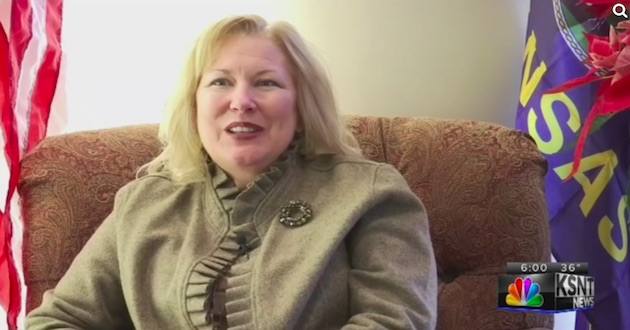Ann Goodall’s job as a social worker with the Kansas Department of Children and Families is often traumatic, she said, and though she’s been there for 16 years with no thought of quitting, many co-workers do.
Child protection specialists such as Goodall spend their days knocking on doors that often open into an ugly problem to solve. It chips away at people, Goodall said, and many quit quickly or after a few years, leaving jobs the state has trouble filling. The department reported last month that it had 76 vacant child protection positions.
To solve that problem, the department loosened the requirements for the jobs to match more closely the policy of 40 other states. Applicants no longer must be licensed social workers but must have a four-year degree in a similar field.
According to the department, Kansas was one of only 10 states requiring social work licenses for such positions before the change in May. But many child welfare advocates, including members of Kansas’ National Association of Social Workers, oppose the move, and see loosening requirements as lowering standards for workers who make life-changing decisions daily. The former head of Missouri’s Department of Social Services, Steve Roling has also expressed concern about the change.
“Kansas historically has been a leader in making sure their workers are more ahead of the game than other states,” he said. “In my opinion, it would be a shame to go back on that.”
Alice Kitchen, now retired, spent 23 years as the social services director at Children’s Mercy Hospital in Kansas City. A former foster parent and current member of the National Association of Social Workers, she is critical of the Kansas agency’s decision.
“Taking a child away from a parent is as significant and sacred an obligation as the death penalty,” Kitchen said. Requiring a social worker’s license helps ensure an investigator is knowledgeable and ethical, she said.
Social work requires a deep understanding of human growth, development and behavior, Kitchen said, and a bachelor’s degree alone is no proof of that expertise.
But department Secretary Gina Meier-Hummel, who began her career as a child protection investigator, said her bachelor’s and master’s degrees did nothing to prepare her for that sort of work.
Licensed and un-licensed investigators alike will receive mandatory training throughout their careers with the department, Meier-Hummel said. That, she said, will do more to prepare them than any college course.
“Critics aren’t looking at what’s happening across the nation,” Meier-Hummel said, pointing out that Kansas was in the minority before the change. “Those same critics are welcome to come do the work themselves if they want to.”
The staffing issue is urgent because the number of children in Kansas’ foster care system is growing. At the end of May, the agency reported 7,670 children in the foster system. In 2008, it had 5,754. The agency did not say how many total child protection specialist positions there are in the state.
Kansas’ new standards match closely with neighboring Nebraska. That state has never had a social work license requirement for specialists, Nebraska’s Division of Children and Family Services director Matt Wallen said. Even its current four-year degree requirement is relatively new, Wallen said. Before a change in the early 2000’s an associate’s degree and previous experience was the standard.
Vacancies are nothing new, Goodall said. She recalls only a few brief moments when the Kansas Department of Children and Families has been fully staffed. Stresses of the job, and the thanklessness of it, means there are usually empty desks, she said.
“I’ve never wanted to go anywhere else, but talking with people I’ve worked with and previous co-workers, this isn’t something they can do for years on end,” Goodall said. “It’s too upsetting, it’s too traumatizing, it’s a thankless job.”
According to salary surveys, she’s right. Social work is one of the lowest paid professions in the nation.








